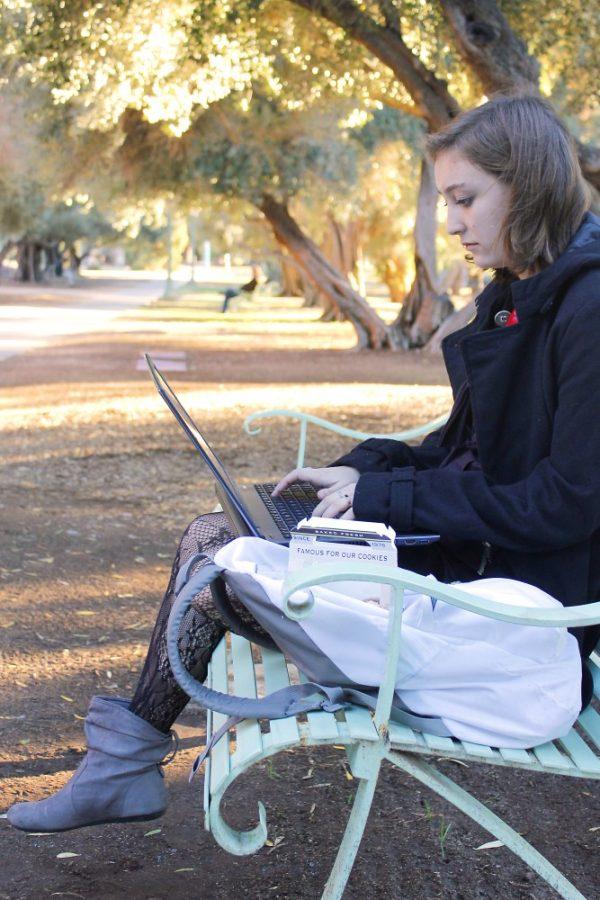For some, online health blogging provides an invaluable resource to help those afflicted deal with their diseases. For others, the Internet can be a dangerous tool — especially when it’s misapplied.
Steve Rains, an associate professor in the UA Department of Communication, performed an 8-week study examining health bloggers. The goal of the study, according to Rains, was to understand the social implications of blogging among people with illnesses.
“The most interesting finding that I’ve come across is that the people who actually lack support from friends and family most benefit from going online and blogging,” Rains said. “They’re able to gain access to others, who although they might not know, have suffered from the same health condition.”
Greer McKee, pre-nursing sophomore, said her dad was diagnosed with Parkinson’s disease when she was 9 years old.
“It was really hard because we didn’t know anyone who had Parkinson’s disease, they were either really old, and my dad felt like he was kind of alone because he was a 31-year-old Parkinson’s disease patient, and that’s not normal,” McKee said.
McKee said “he (her father) felt really isolated” until their family purchased a computer and her older sister began researching the disease online. Mckee said her family met face-to-face with people they found through the Internet who were diagnosed with early onset Parkinson’s disease.
Lisette LeCorgne, nurse practitioner and coordinator of urgent care at Campus Health Service, referred to online resources as “invaluable,” and said patients with chronic illnesses and injuries can utilize blogs to share information and vent.
“Understanding is so often required to have compassion, and other patients who have the same problems are far more attentive, I think, and understanding because they’ve experienced some of the similar symptoms,” LeCorgne said.
But the credibility of online resources may be questionable.
Umur Yenal, a postdoctoral research associate in chemical and environmental engineering, said that reaching out to others online can be informative and provide necessary support, especially in regards to illnesses, but still thinks it can be risky to rely on the Internet as a resource.
“It is a dangerous tool too, you have to be really careful about controlling those blogs and who’s writing and not to give false opinions or false hopes to people, because humans are interesting animals, we can use any opportunity in the wrong way,” Yenal said.
Marcus Pearman, a chemical engineering senior, said texting and the Internet substitute for face-to-face interaction.
“With increased technology we have more and more ways to communicate with each other, which is a good thing, but it minimizes how often people actually just talk to other people,” Pearman said.
Architecture junior Laura Vargas said she believes it’s a matter of adjustment.
“It’s something that’s kind of strange at first, just because anything with technology can be kind of foreign at first, but I think if it makes a person healthier, happier, then I don’t see why not,” Vargas said.
Andrea Corral, a doctoral candidate in environmental engineering, said support is crucial, especially with chronic illnesses.
“Family or friends can get a little overwhelmed with the whole situation and people suffering from those illnesses can just feel lonely,” Corral added.
Rains said he doesn’t see the issue with alternative technological means of communication, and that it only becomes a negative when the information grows burdensome and unnecessary.
“I think the wealth of support that is to be had from those resources is yet to be recognized, and I think we’re going to see it as being exponentially more valuable as time goes by,” LeCorgne said.









